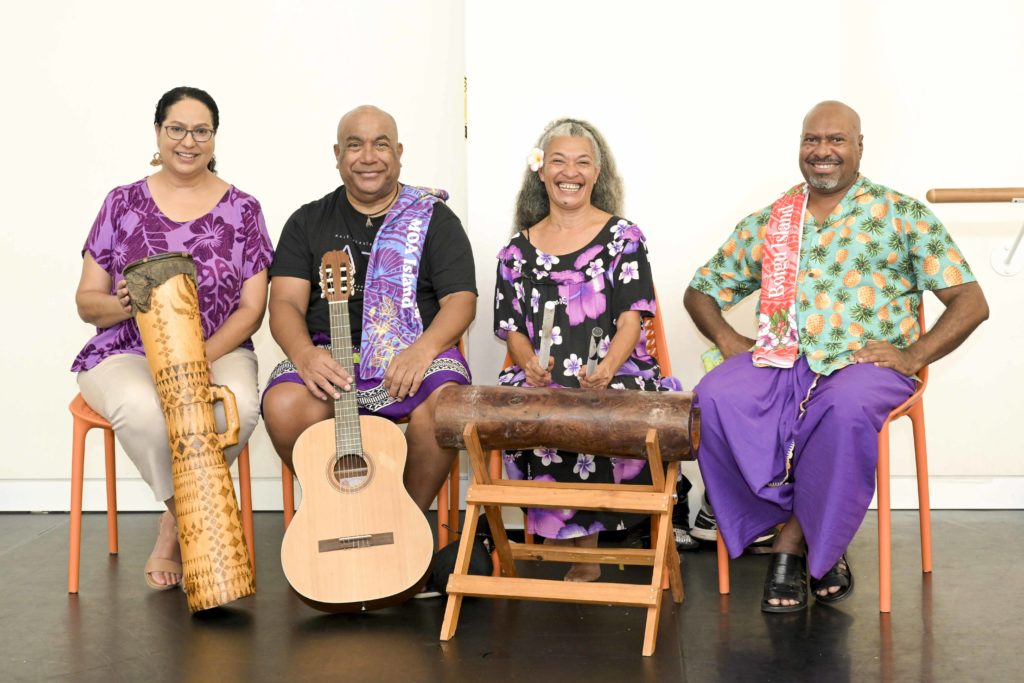An immersive Torres Strait Island cultural experience came alive at NAISDA Dance College at Kariong last week.
Designed to strengthen the next generation of Aboriginal and Torres Strait Islander performers’ connection to land, stories and culture, performances heralded the arrival of cultural tutors back to the national campus to deliver the college’s week-long onsite cultural residency.
The annual program of cultural exchange sees Elders and knowledge holders from remote Aboriginal and Torres Strait Islander communities share their experiences.
Cultural Tutor and NAISDA graduate Dujon Niue has been sharing his Torres Strait Islander knowledge and Mua Island song and dance compositions with NAISDA students for more than 11 years.
This year, he was joined by Cultural Tutors Jeanette Fabila, Helen Anu and Masepah Banu.
Niue stressed the importance of passing on cultural knowledge to the next generation of creatives and performers.
“My role as a cultural tutor is to teach the cultural songs and dances which are composed from Mua Island,” he said.
“We also teach students about the costumes and the props, and how to make them.
“We also teach them how to sing the songs, because they’re all in my language from the Torres Strait Islands.”
Jeanette Fabila will support Niue.
“I’m supporting Uncle Dujon to teach the students how important it is for them as the next generation to carry the culture from Mua Island, and respect everything that they’ve learnt from him,” she said.

The NAISDA students showcased their learnings through two vibrant performances for the community, held onsite at the NAISDA campus and at Mingaletta Aboriginal and Torres Strait Islander Corporation.
The performances, along with a workshop, invited community members to take part in the experience, learning directly from the cultural tutors and students.
NAISDA’s long-standing Cultural Residency Program is guided by the NAISDA Cultural Team and stands as a crucial element in the College’s unique learning model.
As part of the program, NAISDA students will travel to Mua later in the year, immersing themselves in Torres Strait Island culture by living with local families and connecting with the country where the songs, dances and stories originate.



